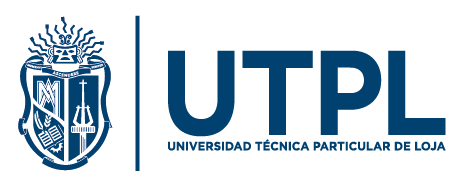Challenges and advances in the dialogue between differentiated knowledge for the promotion of the Culture of Peace
Keywords:
Peace, Inter-scientificity, Nature Conservation, Socio-environmental Conflicts, Social Participation, DialogueAbstract
This research addresses the challenge of methodological approaches to objects of complex studies. Among these objects, we highlight the management and negotiation of socio-environmental conflicts by peaceful means, and dialogue as a condition sine qua non for its realization. The works analyzed here with a new light were developed using the Action Research Methodology (Thiollent, 1985), with Rapid Participatory Diagnostic techniques, such as the Spoken Map and the Focus Group. Based on this perspective, the research question was: What are the challenges and advances observed in the dialogue between stakeholders with differentiated knowledge towards the construction of a Culture of Peace? The results have shown three points that can be related to each other, in item 1, the trickeries that involve local populations in the context of environmental licensing processes, have similarities with the mishaps they face in other contexts, such as with other populations regarding the creation and implementation of protected areas in the territories that originally inhabited. Item 2, deals with the challenges and advances involved in the creation and maintenance of the UC Councils which implies that the realization of the planned social participation of the local communities concerned. Item 3 addresses the challenges of the communication among stakeholders which have differentiated knowledge, focusing on the logic of UC administrators and the logic of local residents. In conclusion, despite the intention and advances in the dialogue, the difficulty of establishing a dialogical relationship between stakeholders with different forms of knowledge remains a constant challenge.
Downloads
References
Acselrad, Henri (Org.) (2004) Conflitos Ambientais no Brasil, Rio de Janeiro: Relume-Dumará, pp. 7-11, pp. 13-35.
Brasil, República Federativa de. Lei Federal nº 9.985 de 18 de julho de 2000. Sistema Nacional de Unidades de Conservação da Natureza (SNUC). Diário Oficial da União. 19 de julio 2000. Disponível em: http://www.mma.gov.br/port/conama/legiabre.cfm?codlegi=322
Brasil, República Federativa de. Decreto Federal 4.340, que regulamenta a Lei Federal nº 9985 de 18 de julho de 2000. Sistema Nacional de Unidades de Conservação da Natureza (SNUC). Diário Oficial da União. 23/08/2002. Disponível em: http://www.mma.gov.br/port/conama/legiabre.cfm?codlegi=374
Diegues, Antônio Carlos; Arruda, R. S. V. (Orgs.) (2001) Saberes tradicionais e biodiversidade no Brasil, Brasília/São Paulo, Ministério do Meio Ambiente/USP.
Freire, Paulo (1992) Pedagogia da Esperança: um reencontro com a pedagogia do oprimido, São Paulo, Paz e Terra.
Funtowicz, S.; Ravetz, (1997) J. Post-normal science and extended peer communities in the face of environmental challenges, História, Ciências, Saúde-Manguinhos, Vol. 4(2), pp. 219-230.
Galtung, Johan (2000) Conflict Transformation by Peaceful Means (The Transcend Method), New York, United Nations.
Gerhardt, Cleyton H. (2007) A invisibilização do outro nos discursos científicos sobre áreas naturais protegidas: uma análise comparativa. In: Anais do XVIII Congresso Brasileiro de Sociologia, Recife, UFPE .
Jiménez Bautista, Francisco; Beltrán Zambrano, Roberto y Moreira Aguirre, Diana Gabriela (2019) Gestión de Conflictos, Madrid, Dykinson.
Ingold, Tim & Kurttila, Terhi (2000) Perceiving the environment in Finnish Lapland, Body & society, Vol. 6(3-4), pp. 183-196.
ITCG - INSTITUTO DE TERRAS, CARTOGRAFIA E GEOCIÊNCIAS. Cartografia Social. ITCG. Disponível em: http://www.itcg.pr.gov.br/arquivos/File/Cartografia_Social_ITCG.pdf . Acessado em 05/08/2013.
Kuhn, Thomas S. (1962) The structure of scientific revolutions, Chicago, University of Chicago.
Leff, Enrique (2006) La ecología política en América Latina. Un campo en construcción. En publicacion: Los tormentos de la materia. Aportes para una ecología política latinoamericana. Alimonda, Héctor, CLACSO, Consejo Latinoamericano de Ciencias Sociales, Buenos Aires.
Lipietz, Alain (2002) A ecologia política: solução para a crise da instância política, Ecología política, Buenos Aires, CLACSO, pp. 15-26 .
Little, Paul Elliot (2002) Etnoecologia e direitos dos povos: elementos de uma nova ação indigenista. In: Sosa Lima, Antonio Carlos de y Hoffmann, María Barroso (Org.) Etnodesenvolvimento e políticas públicas: bases para uma nova política indigenista, Rio de Janeiro, Contra Capa, pp. 39-47.
Little, Paul Elliot (2006) Conhecimentos tradicionais ambientais no marco da intercientificidade, Universidade de Brasília, Projeto de Pesquisa no Departamento de Antropologia–UnB/DAN.
Loureiro, Carlos Frederico B.; Azaziel, Marcos; Franca, Nahyda (2007) Educação ambiental e conselho em unidades de conservação: aspectos teóricos e metodológicos. Rio de Janeiro: IBASE.
Mangabeira Unger, Nancy (1991) O encantamento humano: ecologia e espiritualidade, São Paulo, Loyola.
Meadows, Dennis L. et al. (1972) The limits to growth: a report to the club of Rome, New York, Universe Books.
Mello, Dalila Silva; Martins, Márcia Barbosa; Neffa, Elza (2015) Vaudeville Ambiental: um estudo sobre estratégias e táticas em licenciamento de empreendimentos, o caso do campo de Dunas do Peró, Cabo Frio–RJ. In: Seminário Interdisciplinar em Sociologia e Direito. Niterói, PPGSD-UFF, 14 a 16 de outubro de 2015, n. 5.
Prado, Rosane (2012) Viagem pelo conceito de populações tradicionais, com aspas. In: Steil, Carlos Alberto y Carvalho, Cristina de Moura (Orgs.) Cultura, percepção e ambiente, Diálogos com Tim Ingold, São Paulo, Terceiro Nome.
Quintas, José Silva (2006) Introdução à gestão ambiental pública, Brasília, Ibama.
Downloads
Published
How to Cite
Issue
Section
License
Aquellos autores/as que tengan publicaciones con esta revista, aceptan los términos siguientes:
- Los autores/as conservarán sus derechos de autor y garantizarán a la revista el derecho de primera publicación de su obra, el cuál estará simultáneamente sujeto a la Licencia de reconocimiento de Creative Commons 4.0 BY-NC-SA que permite a terceros compartir la obra siempre que se indique su autor y su primera publicación esta revista.
- Los autores/as podrán adoptar otros acuerdos de licencia no exclusiva de distribución de la versión de la obra publicada (p. ej.: depositarla en un archivo telemático institucional o publicarla en un volumen monográfico) siempre que se indique la publicación inicial en esta revista.
- Se permite y recomienda a los autores/as difundir su obra a través de Internet (p. ej.: en archivos telemáticos institucionales o en su página web) antes y durante el proceso de envío, lo cual puede producir intercambios interesantes y aumentar las citas de la obra publicada. (Véase El efecto del acceso abierto).
-
Los autores han respetado la política de autoría de esta revista.






